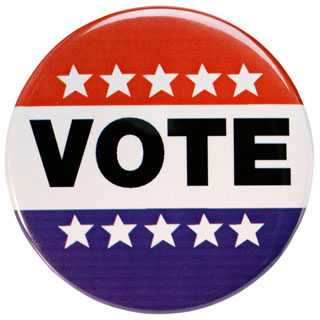There are all sorts of ways to win elections. There’s the high road: contrasting one’s policy differences and visions for the future with those of the opponent. The low road: rumors and innuendo, mudslinging and whisper campaigns. Then there’s the lowest road, known mostly to incipient totalitarian regimes and rogue states. That lowest road is to orchestrate victory by manipulating the voting process itself. To steal elections, in other words.
This is the tack taken by the contemporary Republican Party, which has in the past few years systematically removed the right to vote from potentially millions of traditionally Democratic voters in over a dozen states. Over a dozen Republican-dominated state legislatures have in recent years devised a set of new obstacles to voting. The new laws range from shortened early voting periods and new voter registration impediments to much more odious photo ID requirements.
Here’s a Google challenge for you: try to find more than handful of cases in which voting fraud by impersonation has been successfully prosecuted. A study by New York University’s Brennan Center found that one is 39 times more likely to be struck by lightning than to commit ID-based electoral fraud. Top Republicans in both Pennsylvania and Iowa have admitted that they have absolutely no proof of ID-based voter fraud to support their state parties’ efforts to legislate against the phantom threat.
That’s because it’s not about fraud; it’s about winning elections, and winning by effectively stripping the right to vote. Republicans were stung by widened voting in 2008, when new voters and easy access to the polls put Barack Obama in the White House and gave Democrats hefty majorities in each house of Congress. More Americans voting is better for the Democratic Party, whose policies tend to favor, in protest parlance, “the 99 percent.” The GOP realizes more than ever that it’s a numbers game. Thirty years of catering to religious fundamentalism, race-baiting and hardening adherence to neoliberal dogma has left the GOP with only middle-aged white males as a reliable voting bloc, and as the country’s demographics shift, the party’s success will catastrophically erode. The election of President Obama presaged the tectonic shift approaching, and the GOP went into panic mode, it seems.
Following the trail blazed by Georgia, Republican-led statehouses around the country have worked to dramatically reduce the number of Americans—especially Democratic-leaning groups—in voting booths in November. In 2005, Georgia got the vote-suppression ball rolling by passing its voter ID law, the first of its kind. Rather than the 15 or so forms of identification previously accepted (birth certificates, social security cards or even power bills, for instance), the new law demanded that voters present an up-to-date, state-issued photo ID. For citizens without a current driver’s license—disproportionately the rural elderly and urban minorities—this amounts to disenfranchisement. The voter ID law effectively reinstates the Jim Crow-era poll tax. In fact, the new photo ID-based laws tread so closely to Jim Crow that the Voting Rights Act of 1965 stipulated that the Department of Justice intervene in South Carolina’s recently passed voter ID law due to its disproportionate effect on the state’s black citizens.
But despite the Southern, Jim Crow provenance, the new laws are now nationwide and ultimately economic. The new prohibitions on our nation’s founding achievement potentially affect any economically vulnerable citizen in more than a dozen states—as many as five million, according to estimates. The GOP, having become the party of Southern white males, is now exporting a new sort of Jim Crow, updated to include poor and elderly Americans. It is a Dixiefication of the wider country in an age when, according to conservatives, corporations are people and money is speech.
And in 2012 presidential and congressional swing states like Wisconsin, Florida and others, vote-suppression laws could very well steer the country quite decisively in a direction the numerical majority oppose. The 2000 election that brought George W. Bush to the White House was ultimately decided by a margin of 537 votes in Florida. The battle for the White House—and party strategists know this—comes down to a veritable handful of districts in swing states. Through GOP machinations, the presidential election might be over before the campaigns even start.
But is the GOP playing with fire? Like, literally? Imagine a scenario in which President Obama is unseated in November, not due to a relative deficiency in his message, but due directly to the GOP’s disenfranchisement efforts. Already, we’ve seen Americans come forward with stories of how they’ve been denied a chance to vote due to the new laws (Google “Dorothy Cooperâ€). What happens when slim GOP margins in crucial states are accompanied by thousands of Dorothy Coopers who come forward with shocking stories of their denied rights? What happens if the GOP is successful?
It’s not difficult to imagine an explosion that makes the Occupy protests look like a tea party. Many will feel, quite rightly, that the election was a theft, and appropriate action will be taken. Does the GOP think it’s worth it?
Like what you just read? Support Flagpole by making a donation today. Every dollar you give helps fund our ongoing mission to provide Athens with quality, independent journalism.










